An American story: How the closure of the oldest General Motors car plant in the US left a city battered but unbowed
To understand the sadness, anger and defiance that is shaping US politics, look to Janesville, Wisconsin. When the oldest operating GM assembly plant in the country shut down, the old certainties died with it
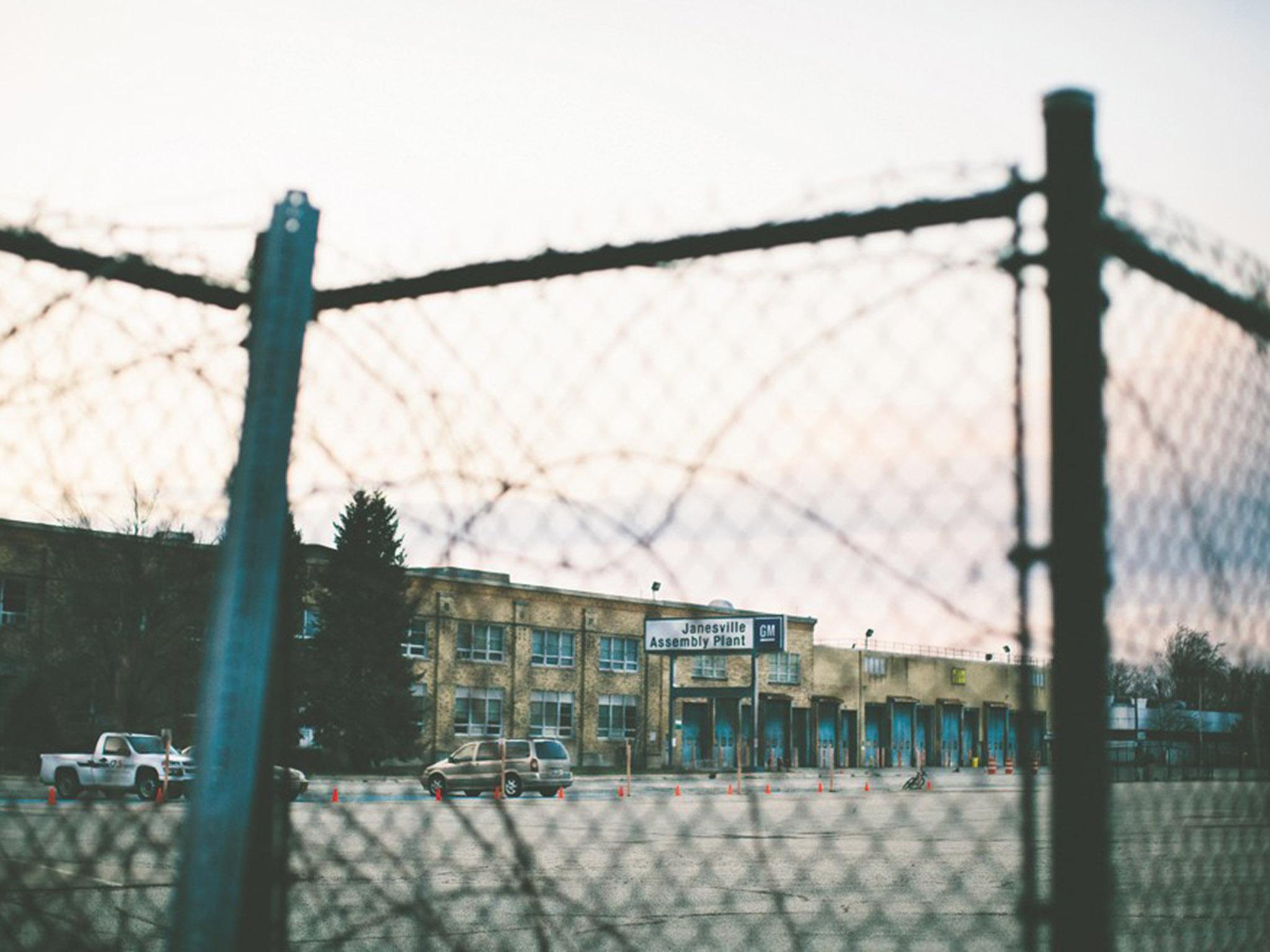
Your support helps us to tell the story
From reproductive rights to climate change to Big Tech, The Independent is on the ground when the story is developing. Whether it's investigating the financials of Elon Musk's pro-Trump PAC or producing our latest documentary, 'The A Word', which shines a light on the American women fighting for reproductive rights, we know how important it is to parse out the facts from the messaging.
At such a critical moment in US history, we need reporters on the ground. Your donation allows us to keep sending journalists to speak to both sides of the story.
The Independent is trusted by Americans across the entire political spectrum. And unlike many other quality news outlets, we choose not to lock Americans out of our reporting and analysis with paywalls. We believe quality journalism should be available to everyone, paid for by those who can afford it.
Your support makes all the difference.At 7.07am, the last Tahoe reached the end of the assembly line. Outside it was still dark, 15 degrees with 33 inches of snow – nearly a December record – piled up and drifting as a stinging wind swept across the acres of parking lots.
Inside the Janesville Assembly Plant, the lights were blazing, and the crowd was thick. Workers who were about to walk out of the plant into uncertain futures stood alongside pensioned retirees who had walked back in, their chests tight with incredulity and nostalgia. All these GM'ers had followed the Tahoe as it snaked down the line. They were cheering, hugging, weeping.
The final Tahoe was a beauty. It was a black LTZ, fully loaded with heated seats, aluminum wheels, a nine-speaker Bose audio system and a sticker price of $57,745 (£45,300).
Five men, including one in a Santa hat, stood in front of the shiny black SUV holding a wide banner, its white spaces crammed with workers' signatures. "Last Vehicle off the Janesville Assembly Line," the banner said, with the date, 23 December 2008. It was destined for the county historical society.
Television crews from as far away as the Netherlands and Japan had come to film this moment, when the oldest plant of the nation's largest automaker turned out its last.
Janesville lies three-fourths of the way from Chicago to Madison along Interstate 90. The county seat of 63,500 people is the home town of House Speaker Paul Ryan, a Republican – an old United Auto Workers (UAW) town in a state led by a new generation of conservative, Republican Governor Scott Walker It is a Democratic town still, though the economic blow that befell Janesville is the kind of reversal of fortune that drove many working-class Americans to support Donald Trump for president.
The assembly plant began turning out Chevrolets on Valentine's Day 1923, and, for eight and a half decades, the factory, like a mighty wizard, ordered the city's rhythms. The radio station synchronised its news broadcasts to the shift change. Grocery prices went up along with GM raises. People timed their trips across town to the daily movements of freight trains hauling in parts and hauling away finished cars, trucks and SUVs.
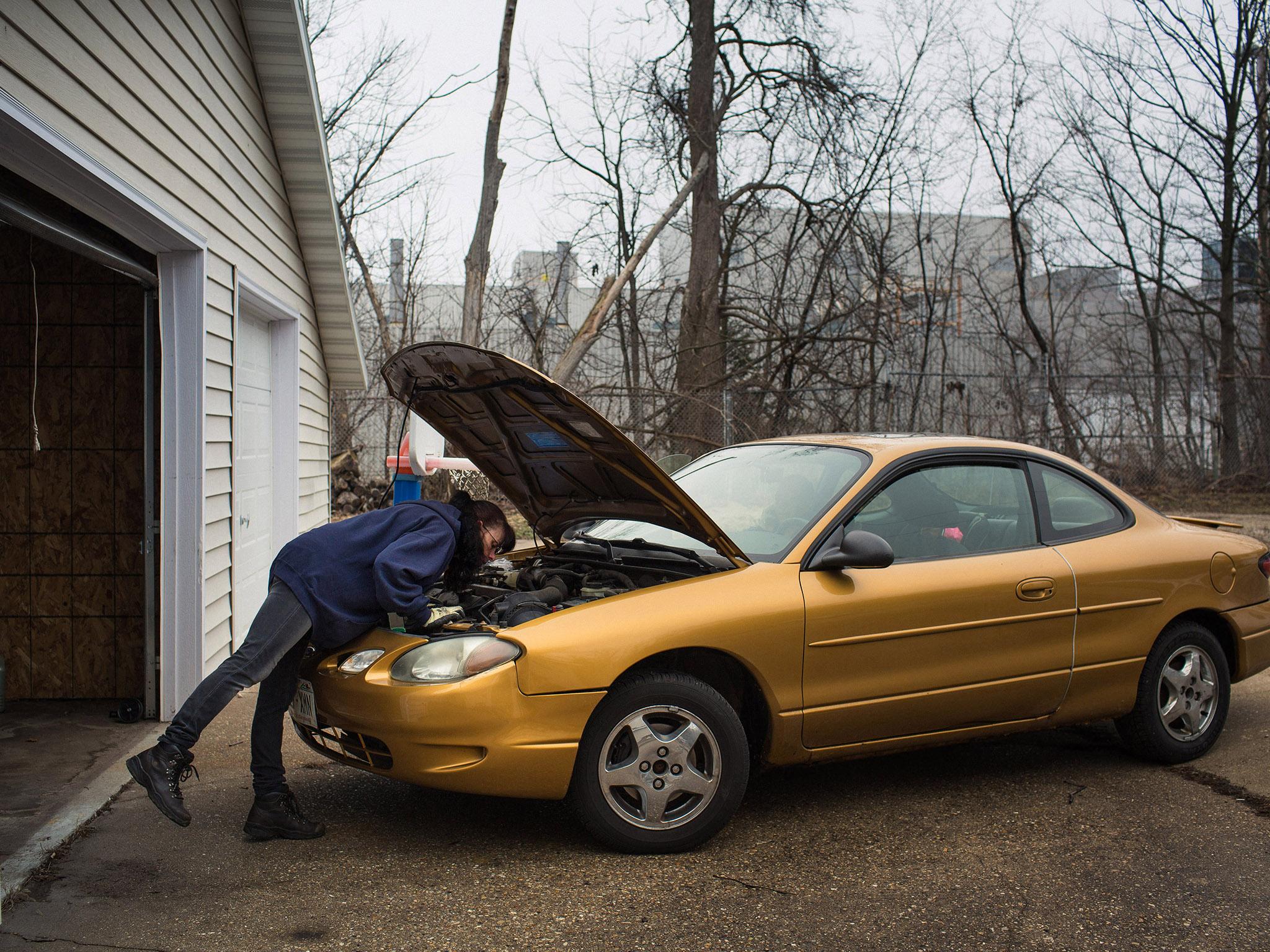
And so, when the plant stopped in the midst of the Great Recession, the people of Janesville – even as they began to reinvent themselves and their town – clung to a faith that GM would reopen the plant so their future could be like their past. Over time, though, people began to confront a question they had not considered before: What choices to make when there were no more good choices left?
***
The first day of classes, 24 August, was fast approaching. And Mike Vaughn knew he couldn't put it off much longer. He couldn't remember the last time he'd kept a secret from his dad, let alone a whopper like this one. But in this Janesville summer of 2009, every time he imagined telling his father, he couldn't get past the very real possibility that the man who'd always stood behind him might not be able to stand behind him now. So Mike waited a few more days and a few more days, until time was running out.
How do you tell your father that you're going to the other side?
The shadow of the three generations of Vaughn union history kept stopping him. The family lore was his lore. It went back to the lead mines that had been scattered through Wisconsin's southwest corner in places with names like New Diggings and Swindler's Ridge, and the McCabe Mine in which his great-grandfather had been killed. Mike's grandfather, Tom, had come to Janesville to work for a GM job in the "See the USA in Your Chevrolet" 1950s, doubling his wages from $1 an hour to $2. He became a zone committeeman representing 1,000 GM'ers in UAW Local 95.
Mike's father, Dave, was hired into the assembly plant in 1967 as a teenager, and three years later, while Tom was on the union bargaining committee, they went on strike together for 11 weeks. Dave became a Local 95 vice-president a couple years after Mike got hired at Lear Corp, making seats for the assembly plant. Dave loved the union so much that now, with the assembly plant closed, he and a buddy stepped out of retirement to reprise their old gigs as its vice-president and president.
The Vaughns were one of only two families in town who had three generations on the Local 95 executive committee. Union pride ran as deep in Mike as in the generations before. But the truth was that his father had been retired for five years and his grandfather buried for a year by the time his wife, Barb, lost her job at Lear and his own would end soon.
What does a union man do when there are no workers left to represent? Mike explored unionjobs.com in three states, but the more he considered the possibility, the less he could imagine leaving Janesville. This discovery he made about himself – startling to his core – had come along gradually, but there it was: there were limits to what he was willing to do to keep standing on the union side.
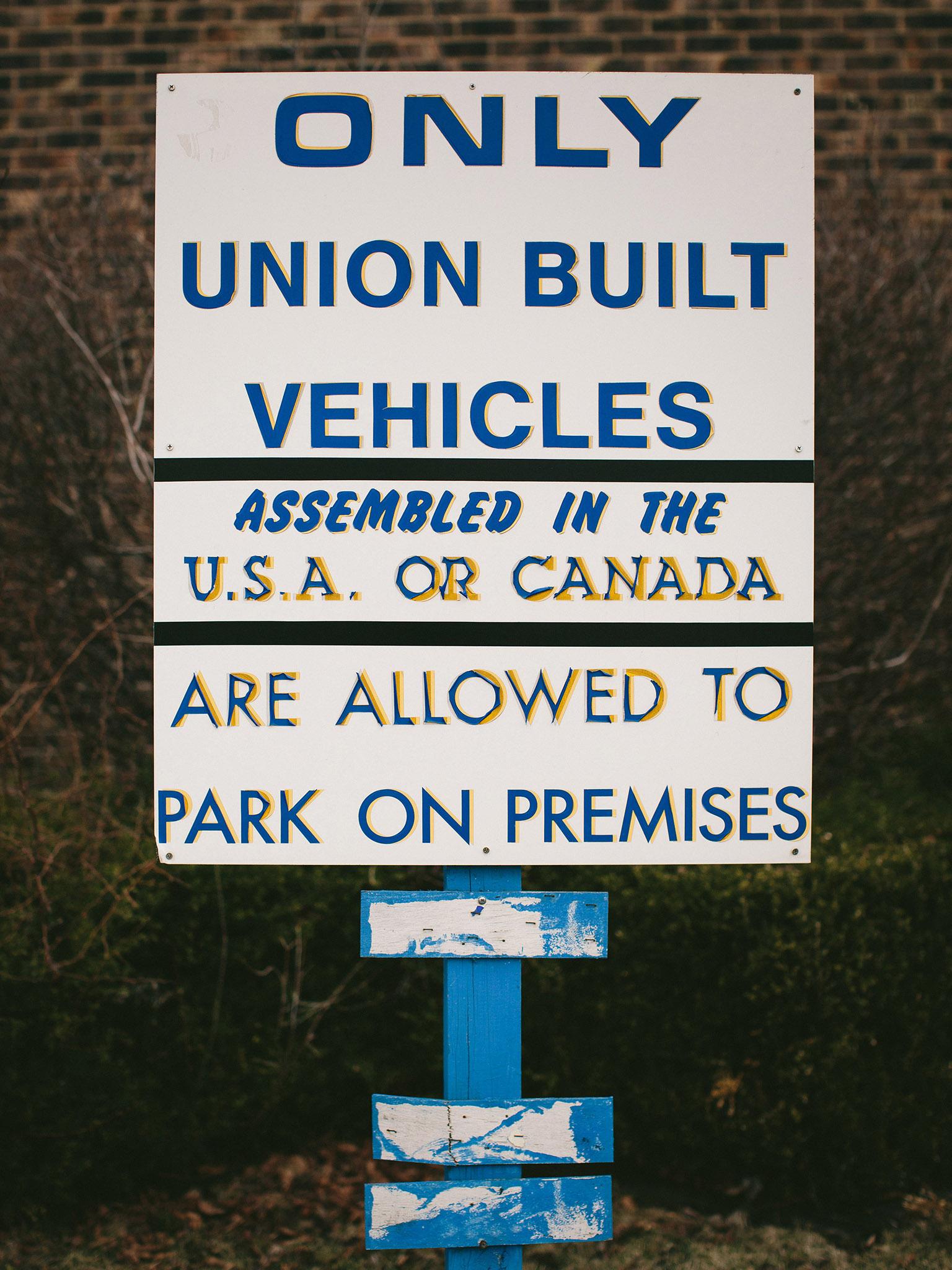
Nothing in his family's past had prepared him for the choices he was confronting. As he struggled with what to do, he watched Barb in astonishment, her head deep into her schoolwork at Blackhawk Technical College, retraining to go into criminal justice, turning crisis into opportunity.
As it happened, Blackhawk Tech was starting a human resources programme, with predictions of jobs at the end. He'd be crazy not to sign up. But the jobs weren't union jobs. He'd be management. What would his father think?
The moment came during his father's 61st birthday party, as they sat on his parents' screened porch together with their smokes. Mike turned to his father and said, "I've decided what I'm going to do." He started with the easy stuff. The stuff about going back to school in 20 days, and Blackhawk's new programme, and the government's training money.
Then he launched into the part that was hard. About how he had come to see that human resources management was a way to educate workers, too. About how he figured that, if he'd been doing it from the union side, how different could it be from the company side?
As he was talking, he kept a close watch on his father's expression. Was that a flicker of sadness? Yes, it was there. But his words didn't say what Mike had feared the most: that Mike was going over to the dark side. No, the old union leader told the young union leader he was proud of him for taking this opportunity to better himself. Then his father wrapped him, the last generation of the union Vaughns, in a hug.
With his father's arms still around him, he heard the words he had imparted to Lear's job-losing workers: if you don't change with the times, you'll be left behind.
***
Just get going, Matt Wopat whispered to himself. Go. He was in his Sierra pickup, in his garage, merely a few feet from the open doorway to the laundry room where his wife, Darcy, and the girls were crowded together. He watched them as if in a picture frame. They were crying. They were blowing kisses his way.
He saw his daughters turn away from the doorway. He saw Darcy wave a last goodbye and shut the door, as if she couldn't take it anymore. He was alone, fighting tears himself. He had tried hard to sound reassuring, to convince them that everything would be fine. Now he wondered how persuasive he'd been, because, frankly, he wasn't sure he believed it himself.
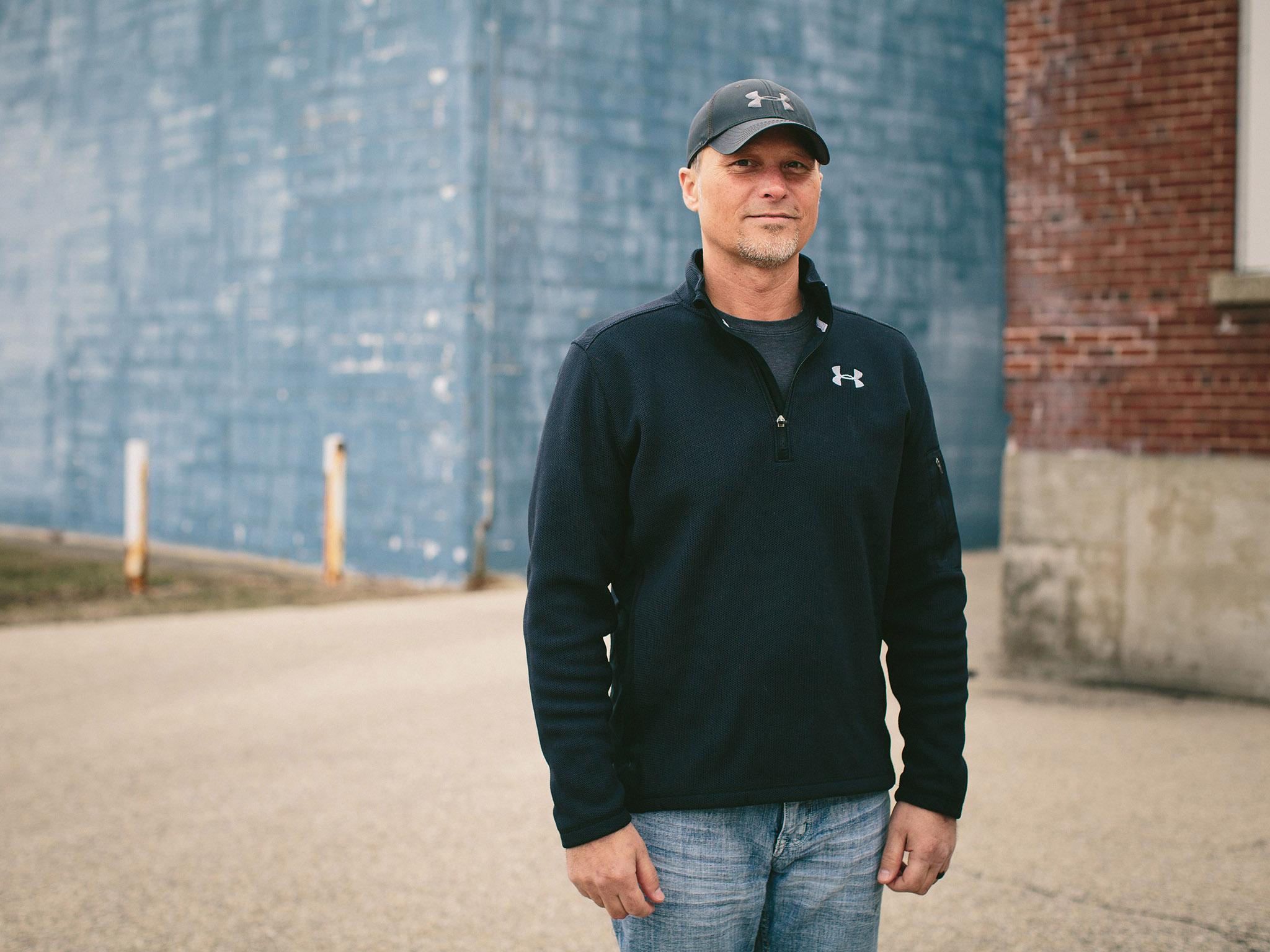
A twist of the key in the ignition, and Matt felt the ageing truck's familiar idle. His hand drifted to the gear shift, but he couldn't make himself shift into reverse.
A weight pressed on him, the kind of weight that presses hard on a man who is on the cusp of his fifth decade when he discovers that doing everything right is not enough. Not enough to live by Plan A, as his father and his father-in-law had done, working on the assembly plant until the years added up to 30 and they could retire. He came up with a Plan B, learning to climb utility poles, just in case the assembly plant failed to reopen. But Plan B wasn't looking good, either.
By this Sunday afternoon in March 2010, seven months had gone by since Matt began to study electric power distribution – finding himself in the throng of out-of-a-job factory workers who pivoted to Blackhawk. Peculiar and embarrassing as it had seemed at first, he made peace with spreading his schoolbooks on the kitchen table after dinner, along with his three daughters, all of them doing their homework and him sometimes even asking his oldest in 12th grade for help with his maths.
His main instructor, Mike Doubleday, had been a journeyman lineman for a power company until he heard that the college needed an instructor to help with the backlog of people wanting to learn to do jobs like his. Mike already had an instinct for predicting which of his students were going to succeed. Matt was going to make a good lineman somewhere, Mike was pretty sure.
What he could not see in Matt was that, as he was puzzling out algebra formulas and electrical theory with some of the guys in class, he also was worrying. Matt is a deliberate man, and deliberate men do not let their mortgage payments slip behind, but there it was. He and Darcy had lived near the edge of what General Motors' $28 an hour could buy, as so many GM'ers did, paying $270 a month on their camper, trading in cars for newer models. So even though, as a GM'er, Matt was lucky to get his union Supplemental Unemployment Benefits on top of his unemployment checks, and the federal government was covering his tuition and textbooks and gas mileage to campus and even the right clothes for climbing utility poles, it didn't add up to anywhere near $28 an hour. The reality was that he and Darcy didn't have much cushion, and his SUB pay was about to be cut in half, and his GM health benefits were going to run out.
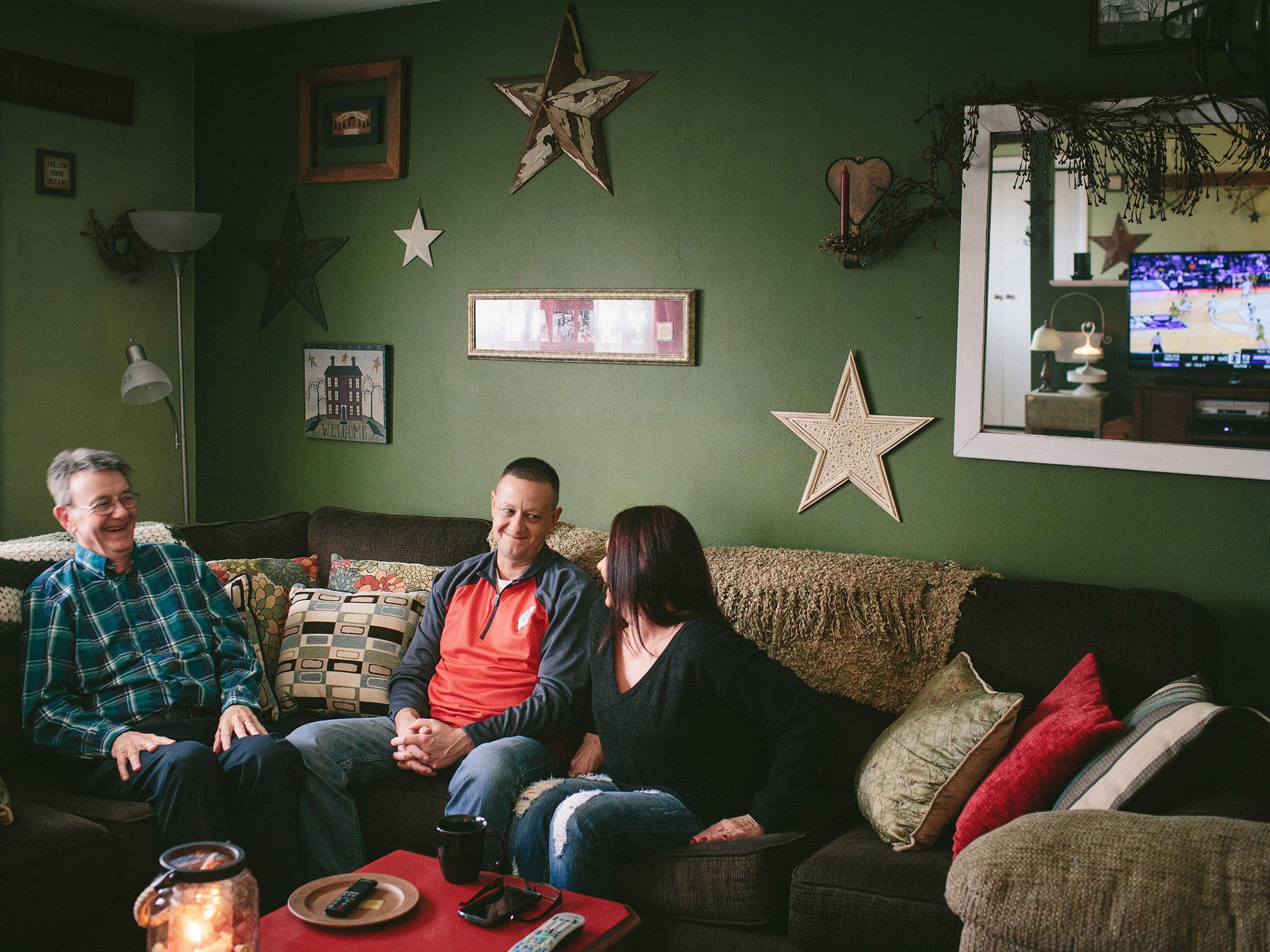
He just needed to hang on until May, until he got his technical diploma and could grab onto the kind of job that Mike used to have – if one existed.
By this winter, hundreds of Janesville GM'ers had morphed into GM'ers working far from Janesville. Their UAW contract gave them these transfer rights. Some were in Kansas City, Kansas. Some were in Arlington, Texas, which was still turning out the Tahoe SUVs that Janesville had made. And a few were in Fort Wayne, Indiana, to assemble Chevy Silverado trucks, which were so popular that the plant was adding a third shift and sending job offers to more Janesville GM'ers, including Matt.
GM gypsies, they were called, because even the ones in Arlington, nearly 1,000 miles away, had, for the most part, left their families behind and were commuting home as best they could. Matt had been firm that he was not going to become any gypsy. No way.
But he and Darcy didn't want to move, either. They'd had long, soulful, repeated conversations on this subject. They were in agreement. Close as they were to both their families, how could they leave?
But that was before the mortgage payments started slipping behind, and his benefits were about to get cut, and the GM jobs opening up were in Fort Wayne, which, while four and a half hours away, was closer than Kansas City or Arlington. That was why, one day, Matt and a bunch of the GM'ers learning to climb utility poles with him decided that it was time to stay after class and ask their instructor, Mike, a tough, pointed question: if they stayed in school to graduate, would linemen's jobs be waiting for them or not?
Mike started by laying out the benefits of electric power distribution. But the more he talked, the more he felt he needed to be a straight-shooter with these guys who already had lost so much. The truth was, he had to admit, not many of his Blackhawk graduates got jobs last year.
"If I were you guys and had an opportunity to get GM wages," the instructor said, "I would run and not look back." That was when Matt understood that the option he'd rejected was the only choice he had left. He couldn't even call it a choice, because he felt that it had all come down to either Fort Wayne or possible bankruptcy, and responsible men don't file for bankruptcy.

As his mind churned on this jam he was in, he could find no one to blame. Not the instructor who was just levelling with him. Or the government, dutifully paying for classes for a job he might never get. Not GM, shelling out for his benefits even as the company had gone bankrupt itself. Not even himself, because every time he'd rethought the exceedingly hard question of whether he had missed a clue, whether he had overlooked some narrow passageway that would have led him out of the maze, he had come to the conclusion that he had not.
Nine weeks of classes to go before he was due to get his diploma, Matt left school.
So now, in less than 24 hours, he would be working at a GM plant he'd never seen in a city he'd never visited. He couldn't think of anything he wanted to do less, or anything he needed to do more.
It won't be so bad, he had told his family. He would be back every weekend.
Now, sitting in the Sierra with his hand on the gear stick, it was time to pull out of the garage and head south into Illinois, past the Belvidere Chrysler plant – not hiring, of course – and then east into Indiana, where he would crash on the couch of another Janesville GM'er because Matt didn't have a clue where he was going to live.
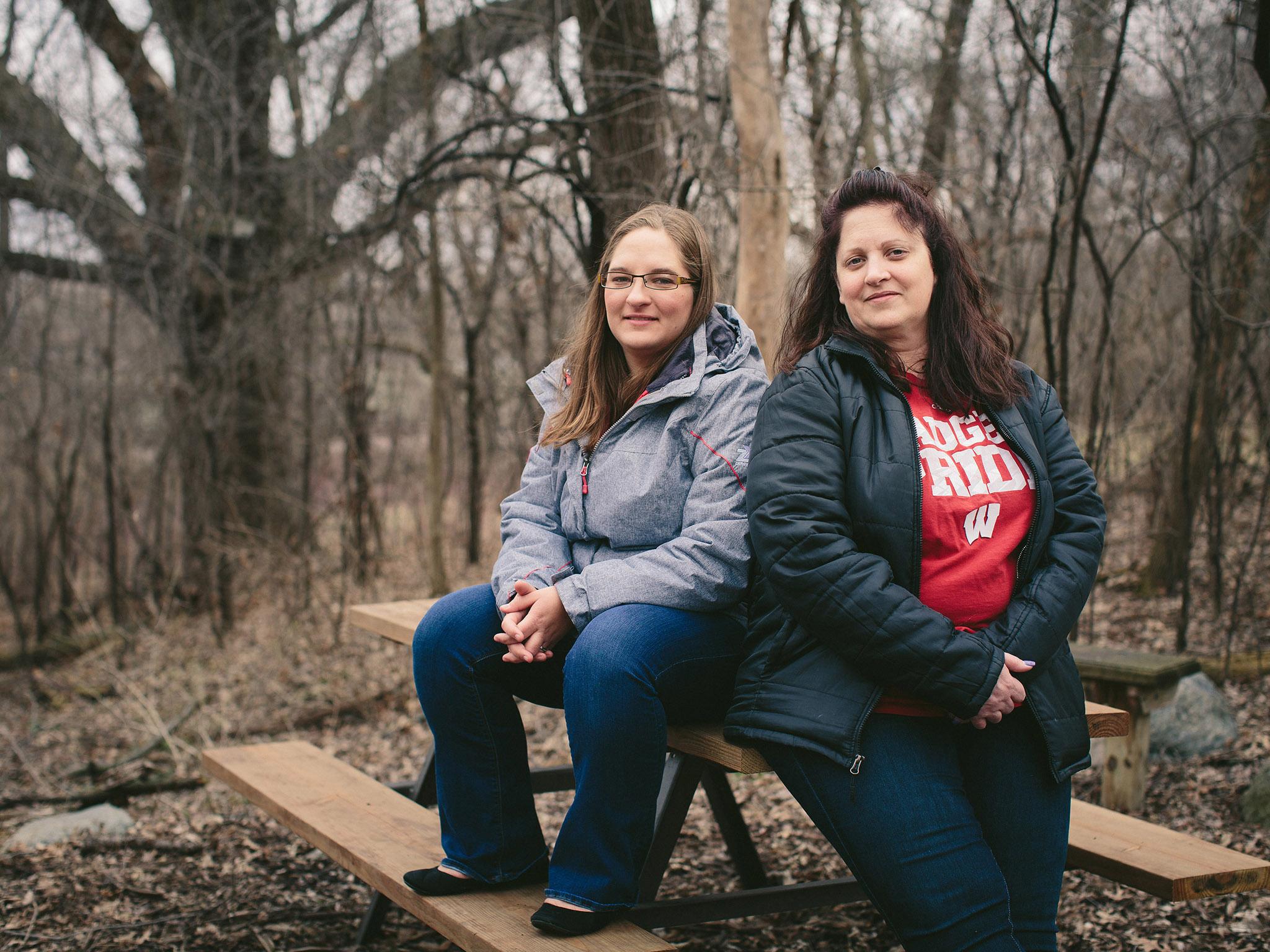
Plan A, Plan B or whatever plan it took, he would at least be the man he'd always understood himself to be: Who would rather put himself out than his family. Who always kept his word when he said he'd do a job. Who understood that, to protect his family, he had to leave them.
***
Kayzia Whiteaker tiptoed over to the couch, where her mom, Tammy, was still up, as she often was now on weekend nights, working her scissors through a stack of coupons. "Want to go grocery shopping?" Kayzia asked, gently as she could, trying to make it sound as if it was no big deal, as if it was the most ordinary thing in the world for a 16-year-old kid to offer to take her mom to Woodman's and pay.
She realised, as she asked, that her childhood was slipping away. This night near the end of 2011 was what growing up too fast looks like, and it had been creeping up on her for a while.
A child wouldn't notice that, the longer her dad, Jerad, worked as a jail guard, his third not-good-enough job since GM, the more depressed he seemed. Or that her mom, ploughing through her coupons while her dad was asleep, had become the chief worrier.
After 10 months at her first after-school job, at Culver's, home of the ButterBurger, she had more in her checking account than her parents had in theirs. It wasn't so rare any more for one of her parents to ask her or her twin, Alyssa, very politely, whether they could lend a few dollars for groceries or gas. That her dad tried sarcasm – "We supported you the first half of your lives, you can support us the second half" – to hide that asking killed him, every time.
Kayzia and her parents might joke, but they didn't talk about the stark facts. She didn't talk about money with her friends. She didn't talk about it even with her grandmother, who she noticed had been quietly sending her parents a little extra each month for the mortgage. There was someone, however, with whom Kayzia talked about everything: Alyssa. In eighth grade, they had huddled on their beds in their basement bedroom, trying to figure out what it meant that their dad was home for breakfast.
They had tried to approach this problem in an optimistic and practical way. Kayzia would add a second job – working as a receptionist for a chiropractor in town. Still, once in a while, she and Alyssa have let their minds drift further outwards. What if a day came when their parents can't pay the mortgage? How will they afford college? Can Alyssa achieve her dream of becoming an engineer? Kayzia's of becoming a general practitioner?
But that was for the future. The immediate problem was that the fridge was nearly empty again, and her parents were low on cash. And that specific problem, not the future, pulled Kayzia to decide that tonight was the time to tiptoe over to the couch and ask her mom the grocery question.
Her mom looked up from her scissors and her coupon stack. From her expression, Kayzia could tell she'd used the right tone. Whew! It was a delicate matter, after all, this scheme to pay for the family groceries.
She found Alyssa in the panelled family room, watching TV with Justin, her boyfriend. "Do you want to come with?" Kayzia asked, putting it that way because she didn't want her sister to feel pressure to help. But Alyssa was in, of course. Justin, too.
Before they left, Kayzia and her mom looked through the coupons to see which ones would be useful. Her mom made a grocery list. Then they were in the car, Tammy at the wheel and Kayzia in the front seat, with Alyssa and Justin in back, as if this thing they were doing wasn't completely topsy-turvy. First stop was the Blackhawk Community Credit Union ATM, where Kayzia and Alyssa jumped out and got $100 each. Then they shot off to the all-night Woodman's on the north side of town. By the time they arrived, it was almost midnight, the wide aisles nearly empty of shoppers.
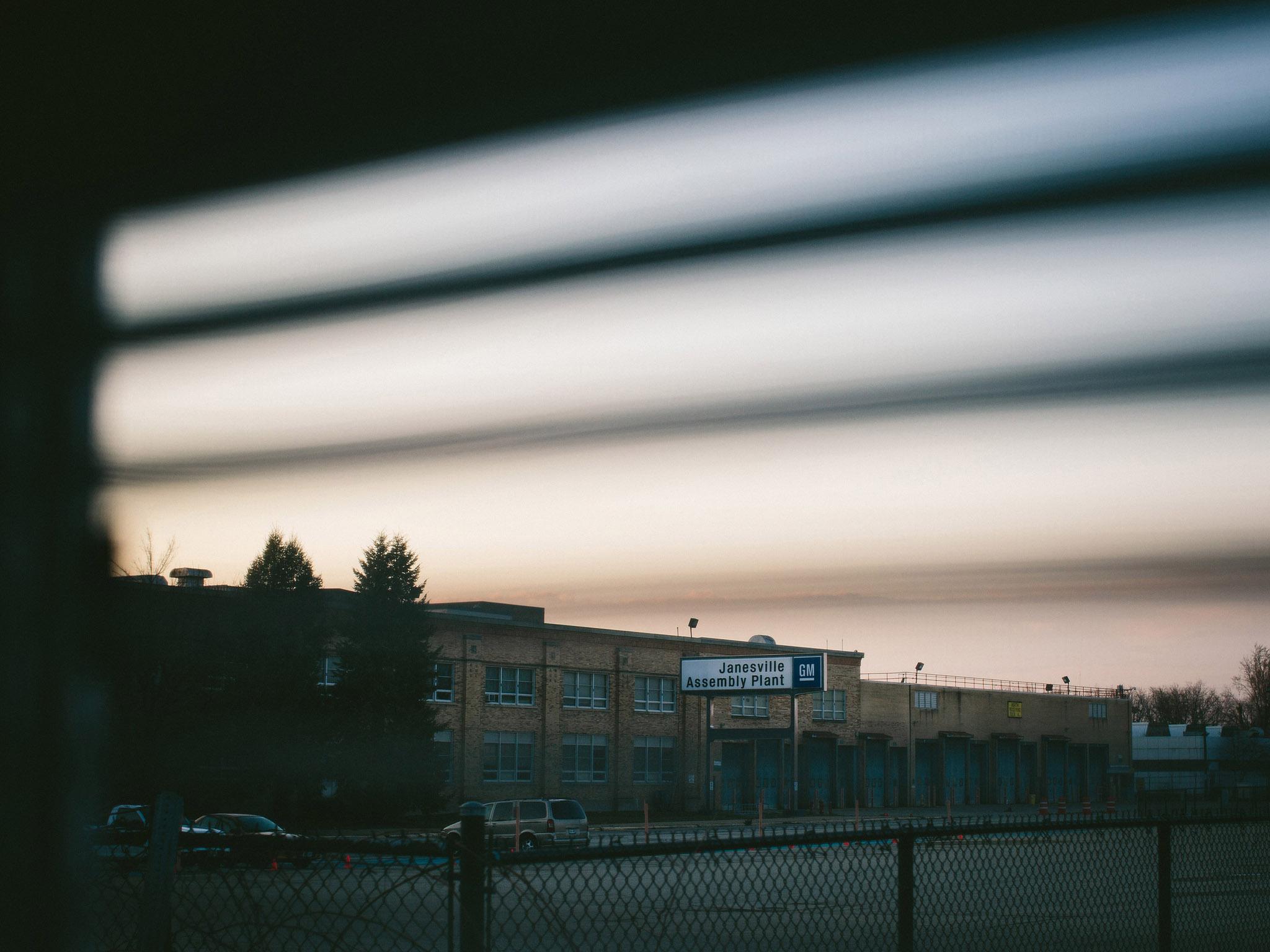
Kayzia had worked out the details. Justin took charge of the coupons, Alyssa worked the calculator, and she pushed the cart and helped her mother load. They bought chicken because they'd been having too much pasta. Lunch meat, because Kayzia was sick of PB&J. Cocoa Puffs and Cap'n Crunch for a change, instead of generic cereal. And then they came to an aisle so tempting but unnecessary that Kayzia let herself walk down it only because it was, after all, her own money: the aisle with frosted chocolate chip cookie dough Pop-Tarts.
The crucial part of the whole venture, the key to its success, was the checkout. They needed to do it just right. No clue that her mom wasn't buying the groceries the way mothers usually do. So, in line, the girls slipped Tammy their crisp $20 bills.
On the ride home, groceries in the trunk, Kayzia relaxed. Sure she was tired, but the thought of Cocoa Puffs in the morning made her as happy as the little girl she used to be. Funny she should think that, she told herself, because, at this moment, she was feeling more grown up than ever in her life. Taking responsibility. With her bringing home $150 to $200 from Culver's every two weeks, and trying to save $100 of it. Sometimes she resented the sacrifices and the responsibilities. But she reminded herself that she and Alyssa had been taught to help people since they were little. They donated to the National Honor Society blood drive and raised money for Parker High's Relay for Life. So why, really, when her parents need the help, should it be any different at home?
As they got to the house, Kayzia felt relief that her dad was asleep. All this time after his General Motors job went away, with him bumping in and out of other work that doesn't pay enough, she knew that he still wasn't over the idea that he was supposed to provide for his family. He was so hard on himself, she thought, not giving himself credit for looking online all the time for better jobs. In the morning, she knew, he would not be happy to find the refrigerator filled by this midnight shopping adventure fuelled by his daughters' checking accounts.
© 2017, The Washington Post
Join our commenting forum
Join thought-provoking conversations, follow other Independent readers and see their replies
Comments